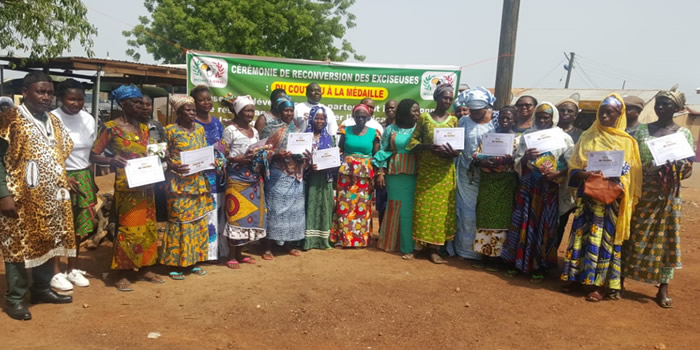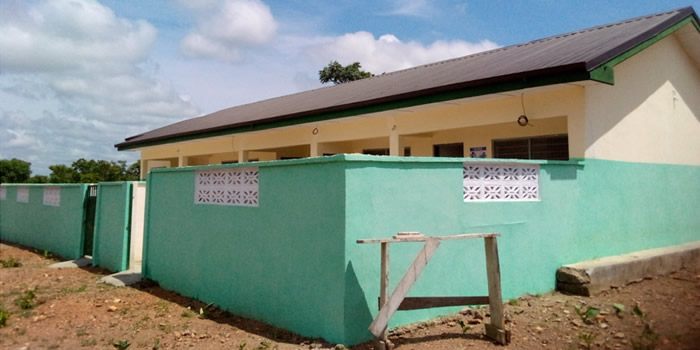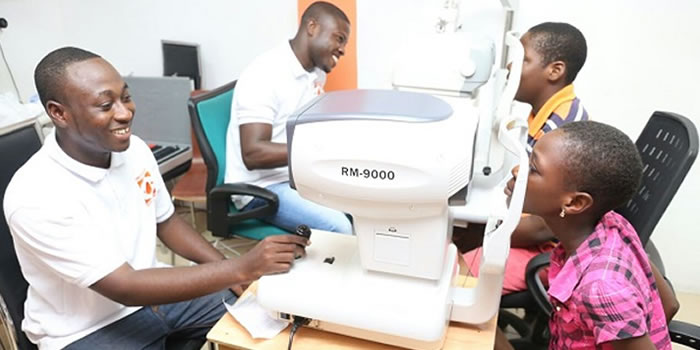

HEALTH
Wa West traditional council denounces FGM practice
Some traditional leaders in the Wa West District have denounced the practice of Female Genital Mutilation (FGM) in their communities and committed to help protect and promote the dignity and holistic development of women and girls.

Date Created : 4/5/2023 12:00:00 AM : Story Author : Philip Tengzu
They said victims of FGM were exposed to many health and social related and life-threatening consequences including diseases such as HIV and AIDS and painful and excessive bleeding during childbirth, which could lead to death of the woman.
Naa Imori Nandon Gomah II, the Paramount Chief of the Wechaiu Traditional Area, on behalf of the traditional leaders, declared their stance against FGM during a durbar of chiefs, queen mothers, and people of the area.
A Sub-Regional network of Non-governmental Organisations (NGOs) organised the durbar in collaboration with the Wa West District Assembly as part of efforts to accelerate the eradication of FGM and all forms of Gender Based Violence (GBV) by 2030.
The Sub-Regional NGOs network comprised 12 NGOs in five African countries – Ghana, Burkina Faso, La Cote d'Ivoire, Mali, and Senegal.
The Community Development Alliance (CDA)-Ghana hosted the delegation of representatives of the NGOs network at its Annual General Meeting (AGM) in Wa and subsequently engaged the traditional leaders at the durbar.
“We apologise if FGM is still practised in our traditional areas. We will do everything possible to support your sensitisation activities. We will also use our own strategy to help eradicate the practice of FGM,” Naa Gomah said.
Some 15 women in the district who served as female circumcisers in the district also publicly denounced the practice and said they had realised its negative impact on the lives of the victims.
“I stand here on behalf of my colleagues to say we didn’t know the effects of cutting the female genitals, but now we know so nobody will do this work again,” Madam Abena Badielenye, a circumciser said.
The women who denounced the practice were awarded certificates of commitment and other items at the event to support their stance of stopping the practice and to encourage others practicing the act to end it.
Madame Damien Youl Ini Inkouraba, the President of the ROAO-LVBG in Gawa, Burkina Faso, said: “Our grandparents practiced FGM because they were ignorant about the negative impact of FGM on the victims.”
She said the CSOs network came together to share good practices in eradicating the menace of FGM everywhere including the Wa West District due to its health and social consequences on the victims.
Madame Inkouraba, who is the leader of the delegation, indicated that the approach of the CSOs was not to condemn the FGM practice, but to persuade and collaborate with the communities to end it.
That, she said, was due to their respect for the cultural, traditional, and religious values of the people and called for collaboration between religious and traditional leaders, CSOs, government agencies, and departments as well as development partners to fight all forms of GBV.
Mr. Salifu Issifu Kanton, the Executive Director of CDA-Ghana, said the 15 women who denounced the FGM practice would join their counterparts from other countries in Burkina Faso for training and capacity building to, among other things, serve as FGM change agents in their communities and districts.
He said the sub-regional NGO network included the campaign against GBV and FGM in their programming towards achieving the Sustainable Development Goal (SDG) 5 target by 2030.
He said the CDA-Ghana was currently working in 12 communities in the Wa West District including Bankpama, Guo, Nakor, Tanvaare, and Kendeu among others.
Madam Vida Diorotey, the Wa West District Chief Executive (DCE), commended the CDA Ghana and its partners for choosing the Wa West District for the event geared towards ending GBV including FGM.
She said the event offered the stakeholders in the district the opportunity to discuss and proffer concrete measures to end negative cultural practices in the district that had the tendency to affect the holistic development of girls and women.








 facebook
facebook
 X
X
 Youtube
Youtube
 instagram
instagram
 +233 593 831 280
+233 593 831 280 0800 430 430
0800 430 430 GPS: GE-231-4383
GPS: GE-231-4383 info@ghanadistricts.com
info@ghanadistricts.com Box GP1044, Accra, Ghana
Box GP1044, Accra, Ghana